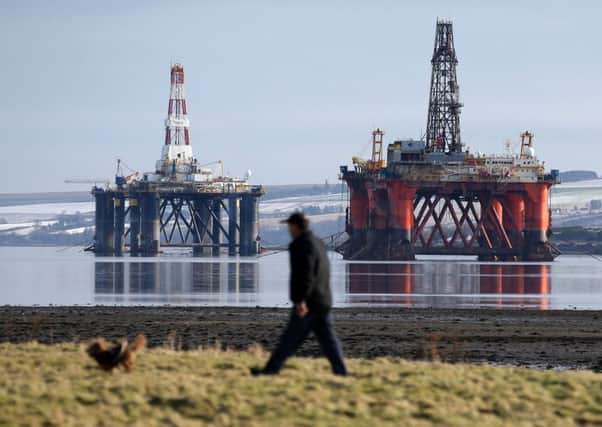Rosalie Chadwick: Plenty of life left in the North Sea
This article contains affiliate links. We may earn a small commission on items purchased through this article, but that does not affect our editorial judgement.


It will catapult private equity-backed Chrysaor into the position of one of the UK’s largest oil and gas producers with the assets producing 115,000 barrels of oil equivalent per day.
Chrysaor chairman Linda Cook summed up the deal: “The North Sea has undergone a revolution in recent times with operating costs falling to competitive economic levels, and we believe this signals a moment for a generational change in the basin.”
Advertisement
Hide AdAdvertisement
Hide AdI would go further and say I believe the Chrysaor-Shell transaction is a bold statement of intent for the industry and will be the tipping point which will lead to the third wave of the North Sea’s evolution.
For the last few years the UKCS has been perched on the edge of a chasm, weighed down with uncertainty caused largely by the downturn in commodity prices. There have been hints that it was about to turn the corner and with price volatility plateauing at around the $50 mark in terms of Brent oil, businesses have successfully adjusted their cost base to become sustainable, creating more confidence to invest in their own business or in the North Sea generally.
However, oil price stabilisation and a resetting of the cost base was not enough to generate deals where there was a disconnect in terms of the bid and asking prices, and previously it has been very difficult to bridge the gap with vendors not wanting to sell too cheaply and others desperate not to overpay. One key element of the Shell-Chrysaor deal is that we can see the majors taking a more realistic view in terms of decommissioning and it signals that if they want to dispose of significant assets, particularly in the North Sea, some decommissioning liabilities will have to be retained to get deals over the line.
On the funding side, we have seen lots of well-funded players coming in to play – EIG’s backing of the Chrysaor team and Blackstone’s support of Siccar Point Energy – are strong examples of significant commitment from shrewd investors. At the same time there has been an opening up of the equity markets over the last six to 12 months with increased private equity backing not just in funding management teams but also in capital deployment.
Following a fairly barren four years for listed E&P companies, we initially saw unconventional sources of funding trickling into the sector and more recently funding has come from more conventional institutional players. It’s not just a case of specialist institutions returning to UKCS, but the generalists are looking at their portfolios and concluding they are actually underweight in oil and gas stocks and are ready to undertake deals in this more realistic environment. Let’s remember the North Sea was founded on the back of ambitious entrepreneurs so it’s no bad thing to see well-capitalised new blood enter the market.
There is a misconception that the Shells and BPs of this world have given up on the North Sea but nothing could be further from the truth. The major operators still have a lot of very significant development assets looking to come onstream in the next three years and while some mature fields no longer meet their investment criteria, that does not mean assets are unattractive to new entrants who have quite different metrics in how they make investment decisions, and who are embracing a host of new technologies which make smaller recoveries more economically viable.
I think the Shell-Chrysaor deal will prove to be the catalyst for other exciting transactions in the months and years ahead. More availability of funding, a stable oil price, better alignment of price expectations and a fresh approach to decommissioning issues, means that all the chess pieces are lined up and the North Sea is poised for a period of productive M&A activity which will see the identity of a lot of owners change quite considerably. The young pups will ensure there is still life in the old dog yet.
• Rosalie Chadwick is head of corporate finance at law firm Pinsent Masons
